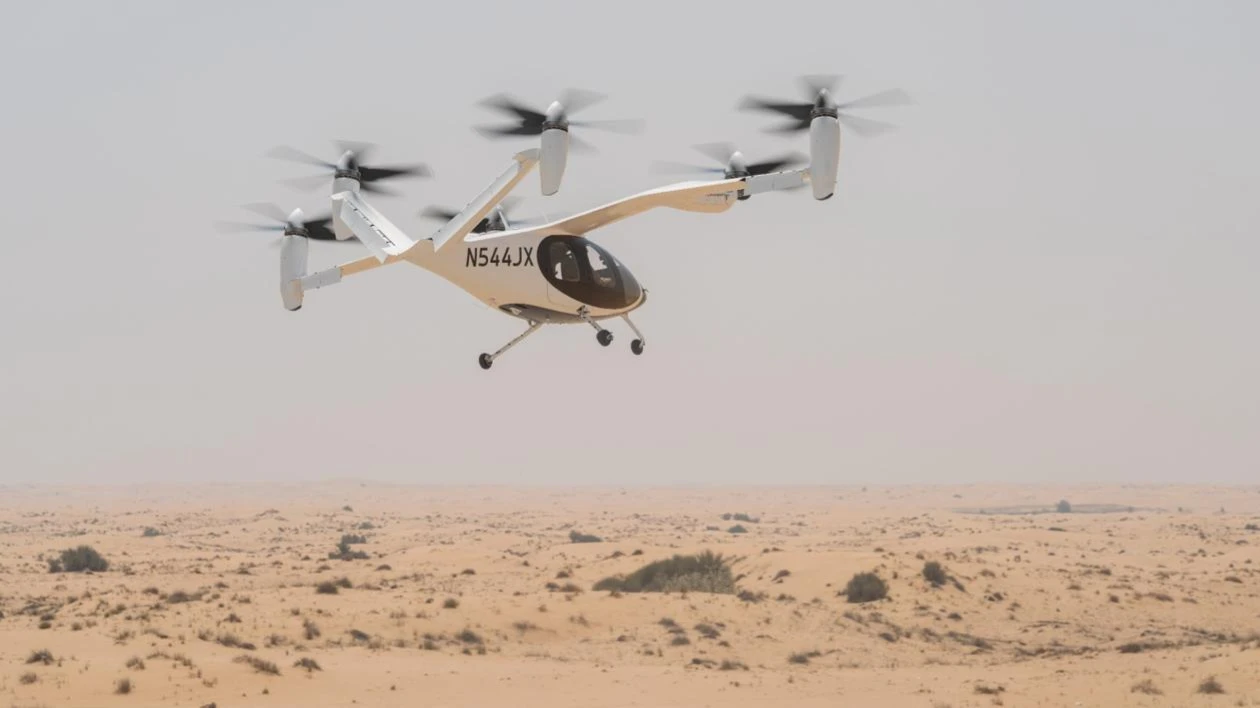Flying taxi maker Joby hits all-time high. Analysts are divided on the outlook.

Shares of flying taxi developer Joby Aviation jumped 17% yesterday, July 16, to hit an all-time high. The defense sector's interest in electric vertical takeoff and landing (eVTOL) aircraft has made the company's CEO a billionaire again. Still, some analysts are cautious about Joby's prospects.
Details
Joby Aviation rose 17% yesterday to $16.30 per share, an all-time high close. In just the last five trading days, the stock is up more than 40%. As a result of the rally, CEO JoeBen Bevirt, who owns 12% of the company, has seen his stake go back over $1 billion, according to Bloomberg.
Investor interest in Joby's eVTOL aircraft has surged after the company conducted a piloted test flight in Dubai last month, wrote Bloomberg. Before that, in early June, Trump signed an executive order establishing a federal pilot program for eVTOL technology amid increased interest in the industry from the defense sector.
"The administration has made air taxis a very high priority," Bevirt said in a interview with Bloomberg Television on March 17. "We’re just thrilled to be seeing such incredible momentum on the DoD side for this industry."
Bevirt's stake had already briefly topped $1 billion, just after Joby went public in August 2021. But by the end of that year, the company's stock had fallen more than 45% from the peak reached during its public debut.
Drivers of the rally
On Tuesday, July 15, Joby announced a manufacturing expansion in California. The company will expand to 40,000 square meters its Marina plant to double production capacity there. Once fully operational, the site will be able to produce 24 aircraft a year.
In addition, investors are awaiting Joby's financials for the second quarter. The release is scheduled for the first week of August, notes Insider Monkey.
What analysts say
Analysts are divided on Joby's medium-term outlook. Of the nine analysts who track the company, four have the stock as a "hold," three as a "buy," and two as a "sell." Their average target price is $8.25 per share, about half the current market price.
In late June, Cantor Fitzgerald maintained its "neutral" rating and $9 per share target price on Joby, citing concerns about the company's cash burn, despite its strong liquidity.
Cantor Fitzgerald noted that Joby has the highest cash burn in the industry right now, with the company guiding it will spend between $500 million and $540 million in fiscal 2025. The company's main peer, Archer Aviation, has not yet provided an annual cash spend guidance, but the companies spent roughly the same amount in 2024, at about $450 million.
The investment bank also pointed out that Joby has pushed back its service launch timeline, now targeting to carry its first passengers in Dubai by the first half of 2026, compared to its previous target of the fourth quarter of 2025.
Cantor Fitzgerald is concerned that the company's management has "not provided transparency" or quantified the unit economics and key drivers of its commercialization strategy, which differs from its competitors', as Joby intends initially to operate as a manufacturer and service operator, while peers have direct sales business models.
Meanwhile, two other investment banks are more upbeat. H.C. Wainwright analyst Amit Dayal has raised his target price on Joby to $13 per share, citing the growing eVTOL market, especially in the defense space. Dayal's optimism is driven in part by Joby's long-standing contract with the U.S. Air Force, under which the company is set to deliver nine eVTOL aircraft for $131 million. In addition, investment bank Canaccord Genuity maintained its "buy" rating on Joby at a $12 per share target price following a significant investment by Toyota.
About the company
Joby is developing eVTOL aircraft to operate as taxis in cities around the world.
The company already has preorders worth more than $17 billion, more than any of its peers, notes Sergey Glinyanov, senior analyst at Freedom Finance Global. But Joby still needs to get approval from the U.S. Federal Aviation Administration before starting commercial flights. It is now at the penultimate stage of certification, it stated in a letter to shareholders in May.
In May, Joby received half of a previously agreed $500 million investment from Toyota.
The AI translation of this story was reviewed by a human editor.
